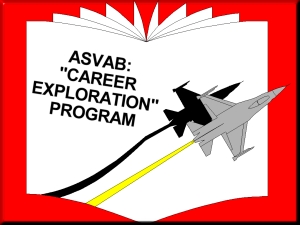
From Draft NOtices, April—June 2010
Maryland Legislature
|

|
|||
On March 24, the Maryland Senate narrowly approved a measure that will prohibit the automatic release of aptitude test results to military recruiters by public schools. The vote was 24-23. Earlier, the Maryland House of Delegates passed the same measure 102-37. Supporters of the Student Privacy Protection Act expect Governor O’Malley to sign the bill into law [see postscript]. Opponents argued that the bill was unpatriotic and anti-military, particularly in a "time of war." Senator Jaimie Raskin, who introduced the legislation, said the measure was needed because the Armed Services Vocational Aptitude Battery (ASVAB) was being administered in Maryland's high schools without parental consent, and results from the test were being forwarded to military recruiters. To correct this, the bill requires the selection of ASVAB Recruiter Release Option 8 for all Maryland students taking the test. Option 8 allows students to be given the test without the results being released to recruiters. The ASVAB is the same test given to new recruits to determine their suitability for various jobs in the military. When given in high schools, it can provide recruiters with extensive personal information on students that is then used to sell them on enlistment. Currently, hundreds of thousands of high school students are tested by the Pentagon during school hours each year, frequently without the recruiting purpose of the test being revealed to students or parents (see January-March 2010 Draft NOtices). Testimony from several supporters of the Maryland bill explained the rationale for the legislation. Elbridge James, a spokesman for the Maryland NAACP, said that parents of high school students should be ultimately responsible for the release of private information to third parties rather than the military. Rion Dennis from Progressive Maryland corrected a widely held misperception by explaining that the opt-out provisions of the No Child Left Behind Act do not cover the release of ASVAB information. Testimony from Cindy Boersma of the Maryland ACLU underscored the infringement of civil rights with the administration of the test, and Merry Eisner of the Maryland PTA offered testimony similar to the NAACP, explaining that parents in Maryland do not wish to relinquish their right to control whether their children's information goes to the Pentagon. Some of the nation’s largest school districts — including New York City, Chicago and Los Angeles — have recently made option 8 a requirement whenever the ASVAB is given in their schools, and the state department of education in Hawaii, which administers all the state’s schools, has also implemented an option 8 policy. Maryland could become the first state to legislatively limit military testing in public schools. In 2008, the California legislature passed a similar measure but Governor Schwarzenegger vetoed it. A bill sponsor is being sought for another attempt in California, and a campaign in Oregon is beginning to form. [Postscript: The Maryland legislation became state law when Gov. O’Malley signed the bill on April 14, 2010.] This article is from Draft NOtices, the newsletter of the Committee Opposed to Militarism and the Draft (http://www.comdsd.org/) |
||||